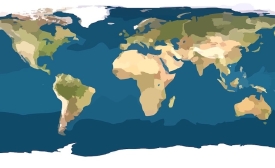literacy

Individuals' knowledge about the world has national security implications that public diplomacy can address, writes U.S. ACPD Executive Director Vivian S. Walker.
Book Aid International, a charity that supports literacy by increasing access to books, is returning to Sierra Leone. The charity, which ships around a million books each year to libraries in sub-Saharan Africa, sent a shipment of 38,000 brand new, carefully-selected books to Freetown to help the country rebuild after the Ebola crisis.
International donors must boost aid to developing nations to ensure that millions of the world's poorest and marginalised children can go to school, a group of Nobel laureates said on Monday, ahead of a global conference on financing for education.
Taliban militants gunned down and killed six people in Afghanistan working on a government-backed literacy project in the northern province of Faryab, officials said on Wednesday. The insurgent group is stepping up attacks on state workers ahead of presidential elections due in April 2014, fanning security concerns as foreign troops prepare to withdraw from the country by the end of next year.
In a recently televised broadcast of Chinese Character Dictation Conference — China’s equivalent of a spelling bee — the nation’s best and brightest were asked to write, in its traditional form, a word that stumped 70% of the teenage contestants and a startling 90% of the grown-up audience (who, as voluntary spectators at a spelling bee, were probably no literary slouches themselves). The word that eluded this extremely well-read crowd was toad. Pause and consider that for a moment.
The Books for Afghanistan program recently received a Public Diplomacy Grant award of $4.5 million from the U.S. State Department, which will allow it to print and distribute nearly 2.6 million books by September, including 1.7 million copies in Dari and Pashto, the major languages of Afghanistan. That's a huge boost from its paltry 2011 budget of $67,000 from private donors.
Stories from Afghanistan's rich, centuries-old oral tradition have helped teach reading and thinking skills to U.S. children since 1998. Now they're being employed for the same purposes in the country of their origin... thanks to a generous grant from the U.S. government.
Army 1st Lt. Michael O’Neill was deployed to Afghanistan when his family asked what they could send him to help the Afghan children.Little did O’Neill realize at the time that his request for children’s books would be instrumental in launching an innovative literacy initiative...







